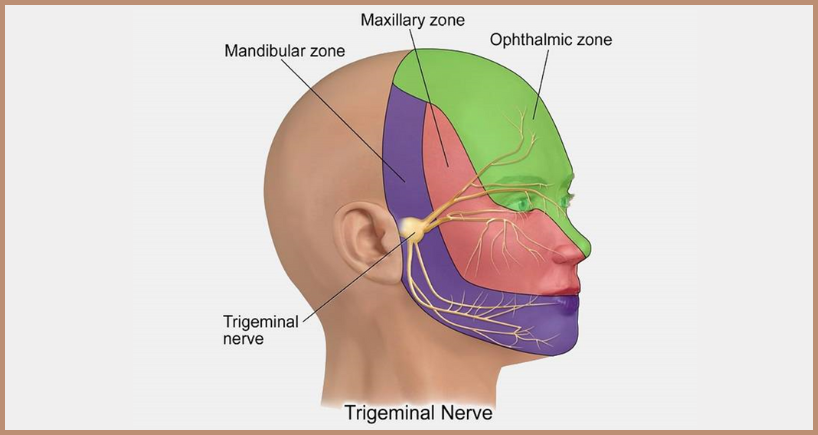
Trigeminal Neuralgia
Trigeminal neuralgia, also known as tic douloureux, is a severe facial pain disorder characterized by sudden and intense, sharp, shooting, or electric shock-like pain along the trigeminal nerve, which is one of the major nerves controlling sensation in the face. This pain condition is often triggered by common, everyday activities and is considered one of the most excruciatingly painful conditions a person can experience. Here are some key points about trigeminal neuralgia:
1. Trigeminal Nerve: The trigeminal nerve transmits sensory information from the face to the brain. It has three major branches: the ophthalmic, maxillary, and mandibular nerves. Trigeminal neuralgia typically affects one or more of these branches.
2. Symptoms: The primary symptom of trigeminal neuralgia is intense, sudden, and severe facial pain, often occurring on one side of the face. Triggers for this pain can include activities such as eating, talking, smiling, or even a light touch to the face.
3. Episodic Attacks: The pain typically occurs in recurrent, short-lived episodes or attacks that can last for seconds to a couple of minutes. The frequency of attacks can vary from several times a day to several times a year.
4. Causes: Trigeminal neuralgia is often caused by compression or irritation of the trigeminal nerve, often by a blood vessel that puts pressure on the nerve as it exits the brainstem. In some cases, it can result from other conditions like multiple sclerosis.
5. Diagnosis: Diagnosis is based on a thorough clinical evaluation, including a review of the patient's medical history and a description of the pain symptoms. Imaging tests like MRI may be used to rule out other potential causes.
6. Management: While treatment options can provide relief, trigeminal neuralgia is a chronic condition, and long-term management is often required to control pain and prevent recurrent episodes. Treatment options for trigeminal neuralgia include:
- Medications: Anticonvulsants and antidepressant drugs are often prescribed to manage pain.
- Interventions: In cases where medications are ineffective or cause intolerable side effects, surgical options such as microvascular decompression, gamma knife radiosurgery, or percutaneous procedures (e.g., balloon compression/Radiofrequency Ablation) may be considered to alleviate the pressure on the trigeminal nerve.
- Nerve Blocks: Local anaesthetic injections can be used to numb the terminal branches of the trigeminal nerve.
Individuals with trigeminal neuralgia need to work closely with a healthcare professional, often a pain specialist or neurologist, to develop an effective treatment plan tailored to their specific needs. If you or someone you know is experiencing symptoms of trigeminal neuralgia, seeking prompt medical attention is crucial to manage this severe and debilitating condition.
Categories
Clear allMeet the doctor

- Palliative Medicine | Palliative Medicine
- Support Specialties | Pain Management
- Pain and Palliative Medicine | Pain and Palliative Medicine
-
11 Years
-
1800











